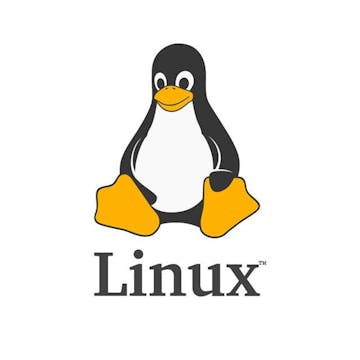
Good to know
Save this course
Activities
Review Linux Basics
Show steps
Review basic Linux concepts and commands to strengthen your foundation.
Browse courses on
Linux Fundamentals
Show steps
-
Read online tutorials or articles about Linux basics.
-
Practice using basic Linux commands in a terminal emulator.
Explore Linux Distribution Guides
Show steps
Familiarize yourself with the features and specifications of different Linux distributions to make an informed choice.
Show steps
-
Read documentation and online guides on popular Linux distributions.
-
Watch video tutorials comparing different distributions.
-
Try out different distributions in a virtual environment.
Practice Linux Commands Exercises
Show steps
Reinforce your understanding of Linux commands through hands-on practice.
Show steps
-
Find online exercises or quizzes on Linux commands.
-
Use a command-line interface to execute common Linux commands.
Four other activities
Expand to see all activities and additional details
Show all seven activities
Compile a Linux Reference Sheet
Show steps
Create a personalized reference sheet with essential Linux commands and concepts for quick reference.
Show steps
-
Collect useful Linux commands and notes from various sources.
-
Organize and categorize the information into a coherent reference sheet.
Join Linux User Groups
Show steps
Connect with other Linux enthusiasts, share knowledge, and troubleshoot issues.
Show steps
-
Find local or online Linux user groups.
-
Attend meetings or participate in online discussions.
Contribute to Linux Projects
Show steps
Deepen your understanding of Linux by contributing to open-source projects.
Show steps
-
Identify open-source Linux projects that align with your interests.
-
Start contributing by fixing bugs, improving documentation, or adding new features.
Participate in Linux Challenges
Show steps
Test your Linux skills and knowledge by participating in challenges and competitions.
Show steps
-
Find Linux-related challenges or hackathons.
-
Team up or work individually to solve problems and submit solutions.
Review Linux Basics
Show steps
Review basic Linux concepts and commands to strengthen your foundation.
Browse courses on
Linux Fundamentals
Show steps
- Read online tutorials or articles about Linux basics.
- Practice using basic Linux commands in a terminal emulator.
Explore Linux Distribution Guides
Show steps
Familiarize yourself with the features and specifications of different Linux distributions to make an informed choice.
Show steps
- Read documentation and online guides on popular Linux distributions.
- Watch video tutorials comparing different distributions.
- Try out different distributions in a virtual environment.
Practice Linux Commands Exercises
Show steps
Reinforce your understanding of Linux commands through hands-on practice.
Show steps
- Find online exercises or quizzes on Linux commands.
- Use a command-line interface to execute common Linux commands.
Compile a Linux Reference Sheet
Show steps
Create a personalized reference sheet with essential Linux commands and concepts for quick reference.
Show steps
- Collect useful Linux commands and notes from various sources.
- Organize and categorize the information into a coherent reference sheet.
Join Linux User Groups
Show steps
Connect with other Linux enthusiasts, share knowledge, and troubleshoot issues.
Show steps
- Find local or online Linux user groups.
- Attend meetings or participate in online discussions.
Contribute to Linux Projects
Show steps
Deepen your understanding of Linux by contributing to open-source projects.
Show steps
- Identify open-source Linux projects that align with your interests.
- Start contributing by fixing bugs, improving documentation, or adding new features.
Participate in Linux Challenges
Show steps
Test your Linux skills and knowledge by participating in challenges and competitions.
Show steps
- Find Linux-related challenges or hackathons.
- Team up or work individually to solve problems and submit solutions.
Career center
Cloud Engineer
DevOps Engineer
Systems Administrator
Network Administrator
Security Analyst
Software Engineer
Data Analyst
IT Manager
Web Developer
Computer Scientist
Data Scientist
Machine Learning Engineer
Software Tester
Business Analyst
Project Manager
Reading list
Share
Similar courses
OpenCourser helps millions of learners each year. People visit us to learn workspace skills, ace their exams, and nurture their curiosity.
Our extensive catalog contains over 50,000 courses and twice as many books. Browse by search, by topic, or even by career interests. We'll match you to the right resources quickly.
Find this site helpful? Tell a friend about us.
We're supported by our community of learners. When you purchase or subscribe to courses and programs or purchase books, we may earn a commission from our partners.
Your purchases help us maintain our catalog and keep our servers humming without ads.
Thank you for supporting OpenCourser.



